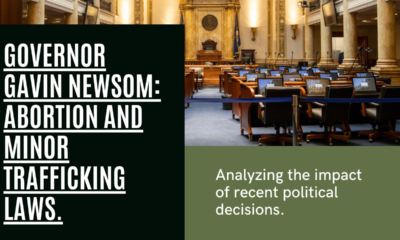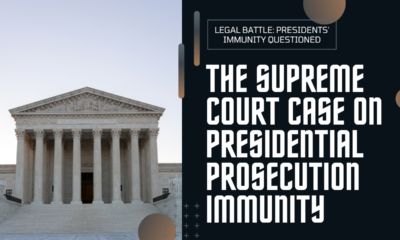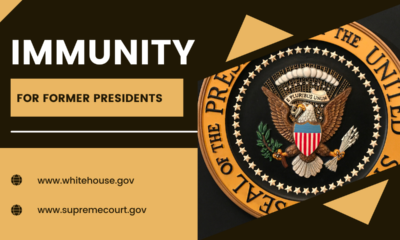Constitution
Marriage in the dock

This week, two cases on marriage come before the United States Supreme Court for oral argument. The two cases will decide, from two separate aspects, whether marriage will mean anything in the United States any longer.
The two marriage cases
On Tuesday (March 26) the court will hear argument on California’s Proposition 8. That instrument amended the Constitution of California to say that the term marriage may apply only to one man and one woman. Critics of this amendment allege that marriage, even between same-sex roommates sharing bed (SSRSB), is a universal “privilege and immunity of citizens of the United States” within the meaning of Amendment XIV. Therefore, no State may forbid it.
The next day (March 27) the court will hear argument for and against the Defense of Marriage Act of 1996. That Act simply says that the federal government may not force a State, without its consent, to recognize two SSRSB as married, just because they move out of a State that gave them a marriage certificate and into a State that would not have done. The Act also addresses questions of federal law as they apply to married couples.
What are the privileges and immunities of marriage?
The term marriage carries with it certain privileges and immunities under common law. They include:
- No authority may compel any spouse to testify against the other spouse in a criminal matter.
- The surviving spouse has the right of first refusal for consent to perform post-mortem examinations, except in obvious “medical examiner” or “coroner” cases.
- The surviving spouse inherits the bulk, rest, and residue of a dying spouse’s estate. (Probate law also treats the children of lawful wedlock differently from children born out of wedlock.)
- A married couple may adopt children.
Mere roommates get none of these privileges.
Granting the term marriage to SSRSB instantly means:
- A roommate can claim immunity from testifying against the other roommate in a criminal matter.
- The surviving roommate now jumps ahead of his dead roommate’s parents in deciding whether an autopsy ought to be done or not.
- The surviving roommate now jumps ahead of the dead roommate’s relatives in inheriting all the roommate’s property. Not just their jointly owned furniture, but every stick of furniture the roommate brought into the “relationship.” Think of the family heirlooms that will now be lost.
- Two SSRSB may cheerfully adopt children.
What about adopting children?
Those who say that SSRSB ought to be allowed a “marriage” say,
But we thought you said two parents were better than one! Why, then, not let a child of either roommate have two effective parents?
But that’s not all “we” said. The two parents mean father and mother. They do not mean “Heather’s Two Mommies” or “Daddy and his Roommate.”
How can practicing homosexuals advise a child going through puberty? Here those who want “same-sex marriage” split into two camps. The male homosexuals insist that they were born that way. For years they tried to suggest that a “gay gene” exists. Well, suppose they are correct. Now suppose they adopt children. Those children will hit puberty, and feel things they never felt before and don’t know what to do with. What shall homosexual roommates tell them? “We can’t help you; we were born gay, but we guess you’re not”?
And if they adopt a girl, how can they advise her on dating, when they never considered that question before?
But of course, no such thing as a “gay gene” exists. The scientific community admits as much. Instead they speak of “epigenetic influences.” And what are they? They include the lessons one learned as a child. And no one has ever shown a solid basis for human biological behavioral determinism. If such a thing existed, it would become an instant defense against any criminal charge. Or form the basis for discrimination for genetic heritage. How hypocritical these activists are, that they want to claim a genetic excuse for one form of behavior while denying such a cause for other behaviors.
In short, homosexuality is a learned response, a teachable response, and a recruitable response.
Lesbians, or female homosexuals, do not plead heredity. They boast that they made a choice to be what they are. And lest anyone doubt why they made this choice, look at their favorite activities. They are: sports, especially organized sports. And more often than not, these sports include:
- Baseball.
- Softball.
- Tennis.
- Badminton.
- Golf.
And what does an athlete do in each of those sports? They hit a ball with a stick! In fact, so many lesbians go in for softball that many gay activists cried “Foul (ball)!” when The Wall Street Journal published a picture of Ms. Justice Elena Kagan – at bat during a softball game.
They know that homosexuality is a learned, teachable, and recruitable response. And they are active recruiters.
Two lesbians are highly unlikely to adopt a boy. (Unless they intend to transfer to him their hatred of men, but that would become a case for their State’s Child Protective Service.) More likely they will seek to adopt little girls and work to inculcate some sort of neo-Amazonian values into them. (And of course Amazonian in this context does not mean “of or pertaining to the tribal cultures on or near Brazil’s Amazon River”!)
The tax treatment of marriage
Marriage has a different tax treatment from mere rooming arrangements. The United States Internal Revenue Service, and nearly every State Division of Taxation, recognizes these Filing Statuses:
- Single.
- Married, filing jointly.
- Married, filing separately.
- Unmarried head of household.
- Qualifying widow(er) with dependent child.
Activists for “same-sex marriage” have never once thought about the tax treatment of marriage. The minute they do, they will soon learn that the tax treatment of marriage is often less favorable than the tax treatment of two roommates! Today, unmarried roommates, whether same or opposite sex, whether they share bed or not, are single in the eyes of the taxman. If SSRSB get a marriage certificate, suddenly they are married, and take a standard deduction less than the combined standard deductions of two single roommates.
So what will they next advocate for? A new tax law that says all roommates must file a common tax return that covers the whole “household”? Will they replace “married” with “roommate” and “single” with “unattached” wherever it appears above?
Happily, Senator Rand Paul (R-KY) and others hope to scrap conventional income-tax laws, with their arcane Filing Statuses. They hope to tax everyone at the same rate, regardless of income or relationship. Income taxes damage the economy in ways that go far beyond Filing Status questions. So the change Rand Paul advocates would be a welcome relief.
What does the Constitution say?
The Constitution has two passages that relate to these cases.
Article IV, Section 1 reads:
Full Faith and Credit shall be given in each State to the public Acts, Records, and judicial Proceedings of every other State. And the Congress may by general Laws prescribe the Manner in which such Acts, Records and Proceedings shall be proved, and the Effect thereof.
Marriage is a public record. Divorce is a public judicial proceeding. So: Every State must recognize a marriage granted in another State. And what that means in practice is ipso facto the business of Congress to say.
So the Defense of Marriage Act is nothing short of the duty of Congress to say what any State may do with a marriage certificate that an SSRSB pair bring in from another State.
Amendment XIV says:
No State shall make or enforce any law which shall abridge the privileges or immunities of citizens of the United States.
Where is marriage in all this? For answer, turn to Amendment IX:
The enumeration in the Constitution, of certain rights, shall not be construed to deny or disparage others retained by the people.
Meaning that the Constitution recognizes a person’s rights at common law.
Now: do same-sex roommates sharing bed have the right under common law to marry? Not a single precedent at common law so alleges. And to claim that it did, would let people make a “public act and record” of all sorts of intimate living arrangements, including:
- Polygamy, including polygyny (the usual arrangement of one man and many women) and polyandry (one woman with many men). This would obviously benefit Mormon and Muslim men, though no man of either tradition will likely support this cause just to get this fringe benefit.
- Communes, clans, and lines, in which all adults “marry” all other adults.
- Relations between adult and child.
- Relations between human and animal.
These are unknown to Western common law. So they have no protection under the Constitution.
Do homosexual activists really want marriage?
One professing female homosexual, with surprising candor, says: No!
It’s a no-brainer that we should have the right to marry, but I also think equally that it’s a no-brainer that the institution of marriage should not exist.
That causes my brain some trouble. And part of why it causes me trouble is because fighting for gay marriage generally involves lying about what we are going to do with marriage when we get there – because we lie that the institution of marriage is not going to change, and that is a lie.
Masha Gessen deserves this much credit: she’s honest. Honest as no other “same-sex marriage” advocate ever has been. She even admits: “We’re lying about where we want to take marriage, and we know it!”
And what would she have in its place? She gives this clue:
I have three kids who have five parents, more or less. . . . I would like to live in a legal system that is capable of reflecting that reality. And I don’t think that’s compatible with the institution of marriage.
Five parents, more or less? What’s that about? Ms. Gessen gives no clue. Those who quote her have no clue. One can only guess. The relationship is likely not biological at all, but legal: she plumps for the commune in which all adults share responsibility for all the children and stand mutually in loco parentis.
This is not healthy for children. To subject children to such a crude social experiment is irresponsible. For the Supreme Court, or any court, to sustain such an experiment is equally irresponsible.
ARVE Error: need id and provider
[subscribe2]
Terry A. Hurlbut has been a student of politics, philosophy, and science for more than 35 years. He is a graduate of Yale College and has served as a physician-level laboratory administrator in a 250-bed community hospital. He also is a serious student of the Bible, is conversant in its two primary original languages, and has followed the creation-science movement closely since 1993.
-

 Education3 days ago
Education3 days ago‘Grading for Equity’: Promoting Students by Banning Grades of Zero and Leaving No Class Cut-Ups Behind
-

 Family3 days ago
Family3 days agoIdaho defends against abortion mandate
-

 Civilization4 days ago
Civilization4 days agoNewsom plays silly abortion politics
-

 Constitution2 days ago
Constitution2 days agoPresidential immunity question goes to SCOTUS
-

 Civilization4 days ago
Civilization4 days agoWaste of the Day: China Still Owes Over $1 Trillion to American Bondholders
-

 Civilization4 days ago
Civilization4 days agoCurrent Conflicts Demonstrate Need for More and Better Tanks In Eastern Europe
-

 Civilization2 days ago
Civilization2 days agoMarine Corps Force Design: In Defense of Chowder II
-

 Education3 days ago
Education3 days ago‘Grow PA’ Plan Helps Solve Economic, Higher Education Challenges










Vernon Zimmermann liked this on Facebook.
Your definition given in the article of epigenetics is simply and utterly wrong. The video at the bottom even states as much. The video describes epimarks influencing gene expression being inherited from parents in the case of homosexuality. Environmental influences (both before and after birth) are a factor, but this radically different from “the lessons one learned as a child”. That’s something that happens at the mental level. This is described as an influence at the level of gene expression.
Michael Alan Kline Sr liked this on Facebook.